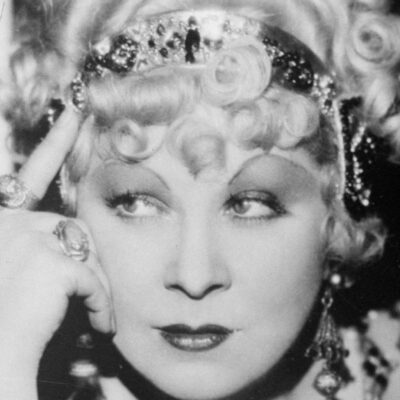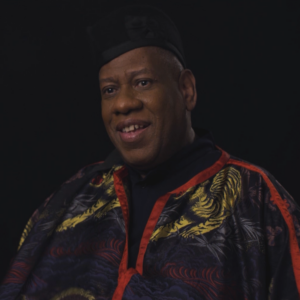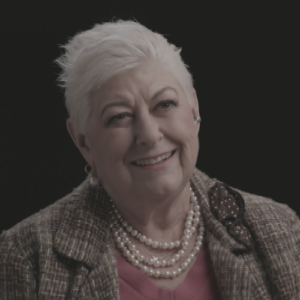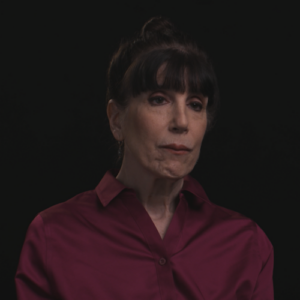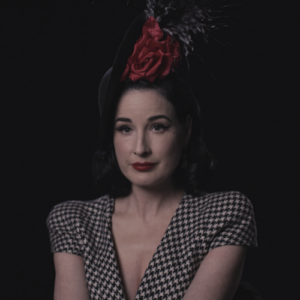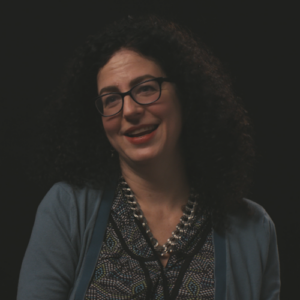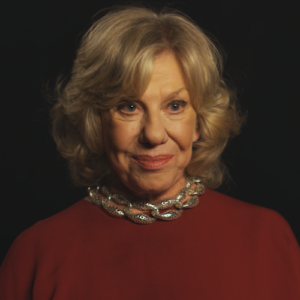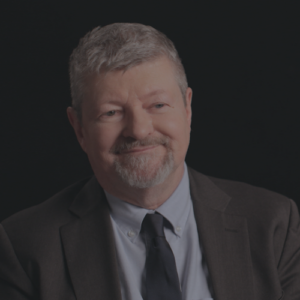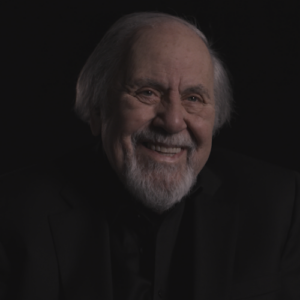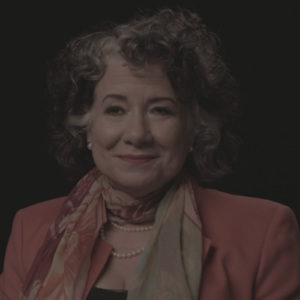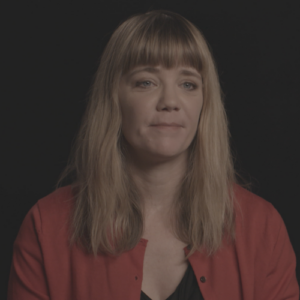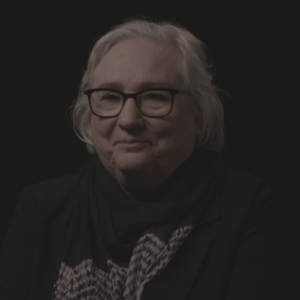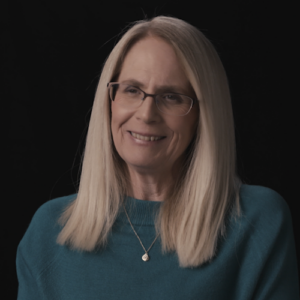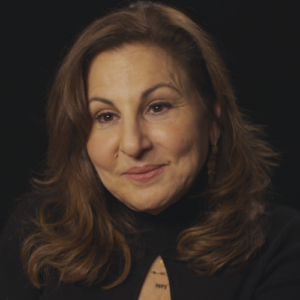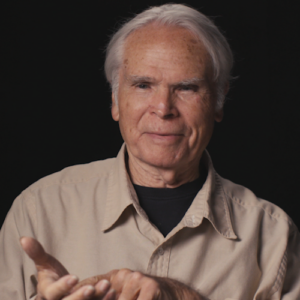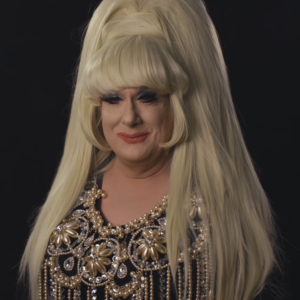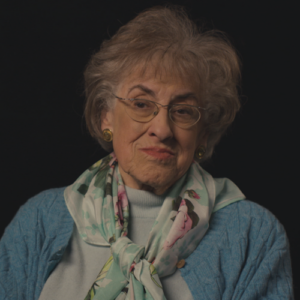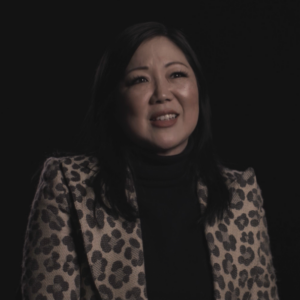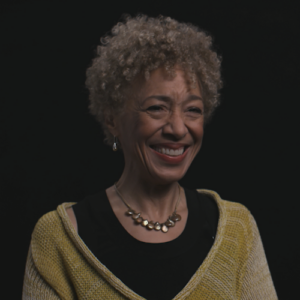Rick DesRochers It’s interesting because I think we think of vaudeville as burlesque variety, theater and vaudeville all being the same thing. So it’s very interesting to see that continuum. And I know you would ask about how that continuum works. So in the late 1890s, let’s say burlesque was actually a form where comedians were parodying other art forms and also people and immigration issues and race and gender and women were actually comedians who did the comic acts and not just the dance part of it. And then as vaudeville or as variety theater sort of moved in a different direction, it sort of kept the sort of third tier kind of, you know, working class audience and sort of moved in that direction. And then vaudeville suddenly became this thing that was becoming respectable. And then Benjamin Franklin, Keith and Edward Albee took viability, made it into what they call the Sunday school circuit. So they cleaned it up to get middle class audiences, especially women and children, to come see these shows. So then there became a schism between what was Variety theater, what was burlesque, and what was vaudeville. And the vaudeville structure was very much so they would start with a what they called a dumb act or a silent act to get people in because they were going to make a lot of noise, getting seated and getting ready. And then they would go to sort of a symbol of maybe a singer or an animal act of something really simple or juggler. In fact, W.C. Fields was one of those jugglers that used to he got his start that way. And then they would build the act, maybe a two person song or a sketch comedy routine between two people. And then it would build as the virtuosity of the performers builds, it would build to the headliner act. And it was at the turn of the century. You’d have people all the way from Sarah Bernhardt doing, you know, Shakespeare monologues. And then, of course, being Sarah Bernhardt, she did Macbeth and Hamlet and played the male roles as opposed to Ophelia. And Wait a minute. And so it it ended with somebody who was either a singer like Louis and Russell or, like I say, Sarah Bernhardt would be the headliner people had come to see, and then it would end there, and then there would be some acts after it, which would be the worst place to be in the lineup, because people are basically leaving after that point, but they still had to have something going on. And the interesting thing I think about vaudeville structure is that it’s continuous. They would do these shows, especially at the turn of the century. It changed a little earlier, but they would do these shows continuously beginning sort of around noon all the way to midnight every day, seven days a week. Some folks would do 12 shows a day. You know, and granted, their acts were like 5 to 10 minutes long at the most. But still, you’re doing 12 of those shows and it’s a continuous cycle. So the main thing was to make sure that audiences could drop in at any time. So whoever was on had to be on and had to be connecting with the audience and what was called putting it over, which I wrote about in the book. The notion of putting an act over meant connecting with your audience and getting them on your side, sort of engaging with them. And so for working class audiences and performers like Mae West, they were in tune with that. And so they had sort of what W.E.B. Dubois called a double consciousness. They would play for their working class women and Mae West case, as well as played a sort of more the upper classes in the male clientele. And that’s where the double entendre comes from, for example. So she knew the women in the audience understood what she was getting at, and she knew the men probably received it in a different way. So she would play both at the same time. And there were many acts that had to do that, especially race acts like Bert Williams, for example. Once again, he had he performed for black audiences and they were all relegated to what they called the gallery gods in the balcony way in the back. And of course, the middle class and more wealthy people were in the orchestra up front. But he would play to both audiences at the same time, telling the same jokes, but in just a slightly coded way so that that black audience would hear something different than the white audience. Or it could be interpreted in many ways. So she wasn’t the only one doing that. And I think that’s really interesting that most acts had to play on that edge of race and gender and economic status, because I would say the majority of performers were from working class, poor backgrounds.
Interviewer That was great. You just answered like ten questions. Oh yeah, that’s perfect. But I actually want to go back to if you just explain what Mae was doing and again and and who. So you explain that. A lot of hundred things in the audience. And it’s just because I want to really make sure we get that.
Rick DesRochers Yeah. Yeah. So W.E.B. Dubois wrote a book, Souls of Black Folks, and in that book he talks about double consciousness, which means he was talking about African-American performers and writers, actually, and like himself. And he said that when you’re talking to an audience of mixed race folks, that you to reach the white audience, you had to perform and sound a certain way so they wouldn’t be anxious about it. And also, they feel like they were getting it and they weren’t being talked down to or they weren’t getting language that they didn’t understand or references they didn’t understand. So the notion was that a performer like Mae West and about I would say about a third of the audience for vaudeville were working class women, which is, you know, sort of a huge amount. So she had to speak to them in a different way. So all the codes that she put in her language that we now interpret as sort of sexual innuendo were really left up to the interpretation of the person who’s receiving it. So if you were a woman, you understood what she was saying in a different way than you were a man, for example. So this double consciousness a lot of performers had to do because if you didn’t or you offended a certain part of the audience, that was it. You’re off. And worse if you offended the producers. The Keith Albie Circuit. These guys have very strict rules that you couldn’t say certain things and you couldn’t be lewd and you were had to play to a middle class audience of women and children and their husbands and fathers. If you offended them, that was it. You were pulled off the bill and your livelihood was gone and then your reputation would be sullied throughout the whole circuit so you couldn’t play anywhere. So people like Mae West had to really negotiate that. And she got in a lot of trouble for it, actually, because the male audience was aroused by what she was saying and the female audience were laughing at her satire of the men that they were sitting next to.
Interviewer You sort of made that distinction between burlesque and vaudeville. But were these were these formats that actors sort of went between? Or once you sort of escalated from burlesque to, you know, like was it sort of a fluid population of actors?
Rick DesRochers Yeah, I think that most folks took what they could get, essentially. So they started in burlesque or Variety Theater because it was, you know, they needed bodies and they needed performers. And, you know, the stakes are pretty low because most of the people in Burlesque and Variety theater, the audiences were mostly working class men who were there just to sort of shout and get drunk and be rowdy, basically. And so, of course, performers didn’t really want to be in that situation. This is not what they do, right. So they wanted to move up through the ranks. But to do that, you had to change your act again, to reach a middle class audience of a very different clientele and women and children and all this. So they literally had to tailor acts. So people like Mae West sort of had to take what worked in burlesque and sort of bring it with her, but also sort of get around the fact that it was pretty raw and raunchy given the fact of where she had come from. But what’s interesting, I think about her is that she never really gave up that sort of burlesque playing to a working class, what was called rough audience. And she was known as a tough girl. Right. She comes from the streets of Greenpoint, New York, and a working class neighborhood of Irish and Polish immigrants. And, you know, this was their humor. They would they would do these saloon acts for good working class men who were just there to have a good time, relax and let off a lot of steam and be very rowdy. So of course, we can’t do that for the same audience. But she tried to negotiate that, but nobody wanted to stay in burlesque. Everybody wanted to move forward.
Interviewer Well, let’s talk a little bit about women at this moment and comedy. You know, I love that article that you found about kind of a sense of humor. Were Well, I guess what my first question is, were were there just as many female comedians as male at this point or. And what was the impression what was the what were the ideas about women and humor at the turn of the century?
Rick DesRochers Yeah. So I think sort of there weren’t a lot of female comedians, really. If there were, it was more kind of, you know, they would do a song and dance and maybe throw in some funny lines about something topical that was happening. But there’s also very few of them because the notion was that women did not have a sense of humor and actually didn’t need to have a sense of humor, because sense of humor was meant to attract women. So men being funny to get women’s attention, basically. And so this was not an issue. So people thought like, well, how are they going to have a sense of humor? They don’t have to develop one. As young women and therefore, where’s the humor even coming from? And the other part of that is that humor. And to this day, I think this is true is often equated with sex. And there’s always this notion of sexual innuendo. And you see this in comedy clubs still, and especially men are still playing this this notion of, you know, telling sex jokes and being raunchy. Right. In order to get cheap laughs, basically. If a woman tried that, especially in 1900, they would think she was basically a prostitute. So and that she had loose morals and was, you know, somehow and this happens in all of Mae West’s performances, she plays a fallen woman who takes other fallen women into her businesses. Usually they’re either brothels or saloons or nightclubs, and she takes them under her wing and says, yes, you’re now labeled a fallen woman because a man has you know, you’ve had sex with a man outside of marriage, maybe more than one. Therefore you’re damaged goods. And now you have to sort of come into my world. But I’ll protect you because I’ll give you a job and a place. And I understand where you’re coming from because I’m the same way. So she would she would sort of take that and turn it around in the act. And what I think is really interesting is, again, the double consciousness of she would say something, but it could be taken in many ways. So she you know, it’s the famous line about her is it’s not what you say or do, it’s how you say and do it that makes it work. And she often gave, you know, her ax to producers and said, this is what I’m going to do. And they were like, oh, great, there’s no offense here. And then the way that she would lean on certain words would make it funny and also probably inappropriate from their point of view. But women definitely were in a place where, yes, you were a wife, you were a mother, you were respectable in your community, and there was no place for having an opinion, never mind telling a joke. And usually jokes are based in some sort of political or social, economic or gender, you know, parody of some sort or satire. So it was assumed that women didn’t even have these ideas going on because, you know, their husbands dealt with all this sort of thing.
Interviewer Great. Yeah. Can you describe the concept of the new woman that was emerging at this moment, how Mae West fits into that?
Rick DesRochers So it sort of goes along with that, this notion that women we’re realizing the suffragette movement is happening just about the same time. That’s really important. But also because or conversely, you have the prohibition movement from the sort of women’s right happening in conflict with that, who really didn’t want women to have the right to vote, essentially, or have a say in politics or the family even. And people like Mae West, who never even was married, never mind. Well, she was married briefly, but, you know, was basically single and had multiple lovers her whole life. She, you know, realized that this was not you know, this was something that I’m sorry.
Interviewer Unless I know. Yeah. Just sort of. How do we define the new woman?
Rick DesRochers Yeah. Oh, yes. So, yeah, the notion is that that the new woman was basically coming into her own saying, Hey, look outside of the home and being a wife and mother, which was the primary goal of the 19th century, it was to make sure you had your home in place and your kids are being raised properly. Outside of that, you didn’t have a function necessarily if you were a respectable middle class woman. But once new technologies come into play and you now have things to clean the house for you, you have vacuum cleaners and you have this new technology, for example, you have more and more time to do things outside of the home. And so a lot of women were like, okay, well, I would like to go and see a show. I would like to go out and, you know, go to a political rally. I would like to see what’s going on there. And then a lot of women were becoming because they started seeing what was going on early 20th century with immigration and race issues and gender issues. They would start responding to that, of course. And, you know, they started agitating for getting the right not only to vote, but just to have a voice in the community. And so that’s where that’s coming from. This notion of the new women is what’s new about it is that she has a place outside of the home. She has a point of view. She has a you know, she has a political agenda. She is also a philanthropist. And one of the most important things is helping out other women who are young or who are poor or who are coming from marginalized circumstances where they need help getting the stigma of that away. So they would literally take them under their wing and and bring them into the fold. And so this is where, in fact they would do union agitation became part of it. As well as, like I say, having democratic voting rights and that sort of thing.
Interviewer Would the would this sort of social rebellion among women be seen on the vaudeville stages of them and sort of translate it into performance?
Rick DesRochers I don’t think directly. I think it was very much they wanted women, especially in vaudeville, especially in the Keith Albee circuit, to be respectable. So they would often be singers and ingenues. And if anything in comedy, it would be more like George Burns and Gracie Allen, or Gracie Allen would be sort of the comic foil, the stupid woman who didn’t understand what was going on, and the George Burns character, the, you know, the husband or father or brother would have to explain to her, you know, these issues. So I don’t think that that was the intention at all. But of course, women having, you know, a sense of humor and a sense of satire and the fact that they understood that they were being oppressed would slide it in with double entendre, especially in music lyrics. And Mae West did a lot of this in songs. You can get away with a lot more than you can when you’re just doing a comic routine because suddenly, you know, you’re listening to pretty music and it’s sort of like, Oh, do I really hear that? And they’re cute little rhymes make it seem less offensive if you were to do any kind of sexual innuendo or even express an opinion or point of view on something, you would really have to to really underplay that. And if a woman word to do that, that would be it. They would take her off the stage. And the idea also and then what happens with the Ziegfeld Follies comes in is they literally take women away from even performing acts of any kind and just make them statues and models that just move around and look pretty in front of male comedians who are in between those acts, telling the jokes and doing the sort of social humor. So no, yeah, women were not were not expected to have any kind of commentary or any kind of thought process was just like pretty voices, pretty ladies, maybe some dancing. But again, not dancing had to be respectable. It had to be, you know, maybe with a male partner. As soon as women started dancing by themselves, there was suddenly this suggestion that it was sexual innuendo because, you know, they were doing this by themselves on their own without anybody leading them, so to speak.
Interviewer I mean, this might be impossible to answer, but do you have any sense of how Mae West was? Did she just have devised this act because she people were responding to it and she wanted to succeed? Or do you think that she went into it with like I’m, I have an agenda here. Mhm. I don’t know if it’s hard to be a. Could you repeat that again? Yeah. I mean, again, maybe you’re you can’t speculate, but, like, do you think that she went into it thinking, I want to comment on men, women, gender, class, or do you think it just sort of she saw it was she stumbled into it as a successful formula.
Rick DesRochers So I think I think not. I think that Mae West was not intentionally trying to make any kind of commentary. I think she was just reflecting what was going on in her life, what she knew and what she had to deal with, especially with men who are trying to control her. And she grew up in a working class family of immigrants and the father was an alcoholic. And the mother, because of that fact, he couldn’t hold a job. She had to go out and work. And so did me as a kid. And one of the safest places to work was on the stage because, you know, you’re not in the factory, you’re not on an assembly line, you’re not in the triangle waist, shirt, factory, sewing all day long, doing piecework. Right? You’re performing. So at least for a child, especially a lot of children and working class children found themselves on the stage rather than in school, let’s say. And so I think as soon as she did this and she was a very young kid, I think her mother put her on stage when she was like six. And again, it was a very small time community stuff. And by the time she was a teenager, she sort of used to being in front of audiences, but she was still a working class kid who had seen an abusive father and then seen men taking advantage of young working class women, making them into so-called fallen women by either sexually assaulting them or, you know, tricking them, so to speak, into having sex and then abandoning them, promising them marriage or this sort of thing. So Mary West was very much about, okay, I know that’s all fake because I grew up with that and I don’t trust men. I think their agenda is is very much about, Yes, they just want to have sex with young women. They don’t care about them. They don’t care about their opinions. And they certainly don’t want them to be sexually aggressive because that would make the man feel, you know, inferior in bed especially. So what would happen is she would she wanted to talk about that stuff because that’s what she was going through and she thought it was funny. And then I think she knew in the audience there are plenty of women, even middle class, so-called respectable women, that would understand where she was coming from. They just couldn’t talk about it openly. So I think as it progressed, she got more and more sort of pushing the envelope of how far she could go with this sexual innuendo, mostly to make the men in the audience uncomfortable and to have the women be sort of like snickering, going, Yeah, I get it, I get it. I see what you’re saying. And also for her to have control over her act, too, because a lot of times and this is actually still true, producers are very vehement about this is what you look like. You play this kind of role. If you don’t, then we won’t hire you very much. The stereotyping and the casting, the typecasting that we still see today. So Mae West has a very interesting thing, and she was often in the reviews, they would say, is, is she a man or a woman? Now she’s in this third gender that we’re not quite sure what that is, you know, because they couldn’t they couldn’t understand. Like she spoke like a man and she used tough language like a man. And she talked about sex openly, like a man. And for her, this was who she was. So she wasn’t doing anything unique then. She didn’t look like a pretty engineer, you know, she was tough and she was strong and she was built very, you know, very necessarily a large woman, but a strong woman and not a typical ingenue by any means. So she knew she couldn’t play those roles anyway. So she did her own thing.
Interviewer Great. Perfect. Can you. So before obviously, you know, she gets the sexual innuendo, you just talk about her her developing an act as a kid, as an early, you know, like she went on stage at six or seven. Yeah, but like, what? What were those venues? What was you’ve been doing when she was a kid and in her teenage years.
Rick DesRochers Yeah. I think there were sort of more local community sort of things. You might get a few bucks to just go up there, sing a song. And I think mostly when she was a kid, it was just singing funny, cute songs and throwing in, you know, little, you know, malaprop things where they couldn’t quite understand what they were singing. And so, you know, she obviously had a sense of humor already going in plays. And a lot of working class women especially use humor to deflect the pain that they’re going through and to sort of, you know, show that they aren’t being hurt. Right. So I think that she was, you know, as a kid was trying to play off the fact that, all right, I get a lot of attention for being cute and singing these sweet songs and, you know, just go along with the program. So I think that that was sort of the early days. I don’t think there was any sort of consciousness that she was doing anything special or unique beyond that.
Interviewer But was she sort of sexual? It was part of the comedy when she was young that she was. Sexualized kid was that?
Rick DesRochers No, I think that was. No, she wasn’t. I think that when she finally put that persona on, it was intentional and that she was, you know, well into her late teens. And of course, then that was, you know, equivalent of our thirties at this point. So. Yeah.
Interviewer Do you know much about her first performance, like the Spotlight story, where she goes out and sings a song? Do you know anything about that? Okay, Well, I want to you mentioned Bert Williams and raised already, but let’s just talk. I mean, what she did were minstrel shows, something that she would have gone to see.
Rick DesRochers I don’t know about that. But I was actually thinking about that. She performed in Chicago and she would perform in black nightclubs on the South Side with jazz musicians and pianists. And of course, everybody was again, some of these places were quasi brothels, if not actual brothels, but they were speakeasies, certainly. And there was this underground element that black musicians who were playing jazz. And of course, jazz was seen as equally as being salacious and promoting sexual abandon and immoral. Right. And so jazz and what she was doing as a singer were sort of equated, and she was much more comfortable because it was a working class environment of marginalized folks. But they were doing the kind of music that she wanted to do. So early on, she would have been singing sort of a lot of what we would consider sort of the early jazz standards of black musicians. And she would use those songs and then create what they called the cooch dance out of that. And I could talk.
Interviewer About, yeah.
Rick DesRochers I mean, further. But yeah, I don’t think that she went to minstrel shows or I don’t know, I mean, there’s no evidence of it. But she certainly performed with other black performers, especially musicians, and developed a great rapport with them.
Interviewer So but the movement aspect is important here as well. I mean, if you could talk about how she developed her dance style and cooch to shimmy, which I know quite a lot different.
Rick DesRochers But yes, it’s all very Southern. Yeah.
Interviewer Yeah. So how did movement I mean, maybe you could talk about this in the context of comedy. How did her movement play into comedy?
Rick DesRochers So I think, you know, they would they would develop these song and dance routines based off of like Victorian song and dance routines, and she would actually make them her own. And she realized when she moved in a certain way, she got certain reactions. And so there’s a great story where she develops this dance called the Shimmy Shovel, or this is what she calls it, and she claims she got it from these jazz clubs that she worked in. But essentially she’s just gyrating her torso and her hips. But she was unique in the work she did because she was sitting while she was doing it instead of standing, which makes a big difference because it all became very intentional. And also, you know, heaven forbid you might actually get a glimpse of some ankle perhaps. And who knows even more if, you know, she moved in a certain way and this was sort of her salesmanship here was right is to promise the notion of sex but not deliver on it. And this is what early burlesque actually did, too. There was a strippers like we know today. They were very much about the promise of, oh, maybe you’ll see a shoulder, maybe you’ll see ankle or something like this, but you’ll never, ever actually see what’s going on. And that kind of titillation was what they all worked on. So she took that and made it her own. And the more sort of subtle she was about it and the more sort of specific she was about it by sitting in a chair and there couldn’t be any distractions, she would bring the focus to her body essentially where she wanted it. And this is what drove people crazy, especially the producers who were like, This is so obscene. So the same dance that someone would do standing up she did, sitting down to change the whole ball game for her. And I think that she was just using what she saw in clubs and working with musicians especially, and just going with the rhythm of the music that was being played. So you’re moving away from like the 19th century sort of Victorian sort of Tin Pan Alley show tune, right? And you’re moving into jazz music and right away the rhythm and the soul of that music is totally different. And of course, middle class white people were really sort of nervous about that because it was not respectable and it wasn’t what they were used to, and it was associated with low class behavior and low class entertainment.
Interviewer Great. So, I mean, if I understand this. So she’s bringing sort of black entertainment traditions onto the largely white vaudeville stage.
Rick DesRochers In a sense.
Interviewer Is that right? Okay. You know, you make an interesting distinction between stage presence and an act. And it was her stage presence, not her act that people objected to. Can you describe that?
Rick DesRochers Yeah, There’s something overtly, I think, less than sexual that there’s a sense that she’s very open and willing to discuss and say anything. And I think she liked to tease. You know, there’s all these stories of her on the road and she had all these affairs with the members of the company and as quite everyone knew about it. And younger women in the company were offended and scared of her and felt that she was a sexual predator. Right. And she would actually enjoy that and push that envelope and tell about her exploits with men all the time to make these folks uncomfortable in the company, to sort of shut them down and also say, yeah, that’s what’s happening. So instead of sort of denying it or trying to hide it or trying to to be ashamed of who she was, she just openly said who she was. And I think that kind of directness really took people by surprise because not only was she a woman, but also she was a person who would say and do anything in front of anyone and not be ashamed for it. She said, this is all what we’re all thinking anyway, and this is what we’re all wanting to be doing. I’m actually doing it. And so for her, you know, she was she was enjoying her life and her time on stage. And so that comes with her on stage. And, you know, it’s what I talk about in my book, the notion of putting something over. Right. This was the key to vaudeville, connecting with that audience. The lights were up. So unlike a traditional stage play, for example, there’s a real connection between audience performer. And if you didn’t make that connection, they wouldn’t respond to you. And so you needed to see and hear and connect with them. And you know, they would do that if she saw somebody in the audience who was uncomfortable, male or female, with what she was doing, she wouldn’t direct her act to that person. So the rest of the audience could look at that person and then we’d all sort of be laughing with her about the uncomfortableness of certain audience members, no matter who they were. And I think that’s the key, is that when an act doesn’t work, people are laughing at you, you know, rather than with you. And they really were on her side in a sense, because she would pick out people in the audience that would look, you know, supercilious or they would be, you know, just sort of arrogant or they would be very uptight and she would put them on the spot. And literally, of course, they had spotlights in these theaters. They would turn the spotlight on these, you know, audience members. And right away they’d be like a deer in the headlights. And the audience would now be on Mae West Side in making fun of that kind of pretension, especially. And again, I remember that the audiences were very segregated. Again, you know, rich folks or at least upper middle class folks were sitting up front. And as it move back, you would have sort of, you know, middle class folks. And then, like I say, you’d have what’s called the gallery gods up in the balcony, which were literally, you know, certain sections of that were for just African-American audience members. They were literally segregated even from the working class. And then, of course, you would have all the working class, you know, folks who would be up there who were coming in after work and blowing off steam and wanting to have a great time and weren’t afraid of interacting. And I think we still have this problem in theater, right, where you have to be polite and we don’t respond and we clap when we’re supposed to. But these audiences wanted to interact with her and she wanted to interact with them. So I think that that’s the key to her success, is connecting with those folks that she knew she grew up with and making fun of the other audience members without insulting them so far that they would walk out, of course, because a lot of people like to be sort of teased. And I want to sort of be in this kind of dangerous place in talking about these things or listening to them, but they don’t want to be caught sort of openly doing it, especially in public, but in the theater that they’re sort of wanting secretly.
Interviewer That’s great. You know, you’ve obviously written about and thought a lot about performers and comedians and is even in the whole scheme of all comedians then to now, is is this idea of melding the person and the persona like she was who she was on stage? Yes. Is this unusual? Is this this way for comedians? Yeah.
Rick DesRochers I would say with comedians. So here’s the bottom line in improv comedy. And Tina Fey would talk about this all the time. But in improv comedy, you have to be truthful for it to work. So it has to be something personal to you. You’re not just telling jokes, you’re not just being funny, satirical about something. It has to be something where what you’re commenting on is actually something you believe in, and you actually want to convince somebody else that this is the truth. This is the way things are. And I think we forget that. We think the comedy is just throwing off one liners just to be funny. And I think with Mae West, she had this persona. People were responding to it. And so she could do both. She could she could engage with them as herself. And she built a character. And now, who knows at this point, as she gets older and older, how much that character and her meld. This happened with Groucho Marx, W.C. Fields and many other comedians, male and female. This notion that you sort of became the character and you sort of lived with that character as you got older and Mae West became Mae West as a person offstage and on stage by performing it, being successful at getting a reputation for, you know, this is what we’re going to get when we get her. And she also, of course, a lot of performers are very smart. They know that the tabloids are out there and they want to know about their personal lives. Right. So she would actually get in these scandalous situations with men and producers and get it into the newspaper as if it had been, you know, shot by a journalist and she had been found out, but she had actually manufactured that so that she would bring audience in to see this infamous woman on stage. So she’s very smart at marketing herself, both onstage and offstage.
Interviewer Do you think that becomes a kind of prison, though, to be sort of stuck in that prison?
Rick DesRochers Well, you know, it’s interesting. In preparation for this, I listen to a Dick Cavett interview with her, I think, in the early seventies. I don’t get a sense that I think she enjoyed being Mae West. I think she enjoyed putting people on the spot. I think she enjoyed being her own person. Like I say, she was never in a serious relationship of any kind. And she was very autonomous right up until the day she died in her eighties. She had young men, boyfriends, like literally right up to the very end. And that’s what she wanted. That was the life she chose. So, you know, and she was okay with that. So I think that I.
Interviewer Think that.
Rick DesRochers I don’t think that it was working and she enjoyed it. So I don’t think she felt trapped by it. I think the opposite happened when she moved to Hollywood and they tried to tone her down or change or rein her in. That’s when it didn’t work and that’s what depressed her. And actually, for a while, her career was, you know, you know, just wasn’t going anywhere because they were trying to make her into some sort of, you know, sort of vampy 19th century saloon gal. And that’s just not who she was.
Interviewer Great. Just back to sort of the early stage stuff, you know, this verbal comedy, you know, the one liners. Can you talk about how I mean, that became her signature in movies. But that’s a really a vaudeville has vaudeville origins.
Rick DesRochers Yes, absolutely. And the funny thing about Mae West is she’s never very good. And a two person usually a lot of these acts are two person comedy, actually of the straight person. And then you’d have the comic, you know, the person who would set up the jokes and the person who would sort of, you know, have the one liners, the zingers or the commentary. And there’s, you know, we know all these dual acts all over the place. And she tried to do an act with her sister actually in this vein. And it was disastrous because she was a solo performer, basically. And it’s interesting, in the early and late 19th century, early 20th century, female comedians were called talking women, as if talking in and of itself were somehow radical and a woman never mind telling jokes, but just actually speaking. Right. So male comics weren’t called talking men. You know, they were all comics, Right. So the funny part of that is this sort of schism between a woman who opens her mouth is going to somehow, you know, not have anything to say or it’s going to be ridiculous. But when she started making comments on what was going on with the people right in front of her, this is what scared people. And because the notion of comics, whether they are duos or solos, is that it’s it can be improvised and tailored, especially live in the moment. So you’re able to change your act in that instance. And if you can’t, if as a producer, you can’t control this because it’s happening on stage, and if people are responding to it and spending money to see this and enjoying it, it can’t pull them off the stage. You’re only shooting yourself in the foot. So she would use that improv technique right from the beginning to play off the audience. She had her standard set ups, you know, lines that are become famous about, you know, goodness, what amazing diamonds as well. Goodness had nothing to do with it. Right. She would say those lines, but she would tailor them for the audience she was in front of as a comic. So I would see her more in the vein of someone like a Robin Williams, for example, or Chappelle, where when they do their standup, they do it on their own and they control the material, they control the patter, and it’s it relies on them to sell it.
Interviewer Great. And so we skipped around a little bit here. I guess we should just go back and mention, you know, Bert Williams. But Eva Tanguay as a as an influence. Yeah. Can you just speak to that?
Rick DesRochers Yeah. So either Tanguay was a French-Canadian immigrant and she was known for sort of a different kind of performer, but in the style of Mae West, she and this is self-admitted. She said, I’m not attractive, I’m not a good dancer, I’m not a good singer. I just love to get up here and just blasted out. And she called herself the cyclonic, you know, performer. This notion that she was like a hurricane on stage and just, you know, one of her signature songs is.
Interviewer Forget the Town.
Rick DesRochers Yes. I don’t care what people think. I’m doing this anyway. You know, that was very bold for a woman to do, especially on stage, but she really didn’t care. But I think her act was more crazy comic, like eccentric, they would call it, right. She seemed like she was out of control, like a whirling dervish up there just sort of dancing and shouting, almost these song lyrics with no sense of tone or rhythm or anything like this. And people hate that. But it was a very different kind of act. And I think part of it was just her audacity. And she was also aware of these amazing costumes that because she grew up poor in French Canada, right? So she would often have to make her own costumes. And so she got used to doing that. And even when she was making 20 $500 a week, I know in 1910 or whatever it was, she made her own costumes and one of the costumes she made were out of pennies, essentially a whole dress out of pennies that had been glued together. For example, she had another one, which was just giant flowers coming out of her, you know, out of her neckline, in which she looked like a giant tulip. So and she made these costumes to be funny and also as part of her sort of crazy persona, so very different from Mae West in that way. But the audacity of getting up there and, quote unquote, having no talents really in the traditional sense, actually, that was her skill and that’s what people responded to. And I think Mae West, too. I mean, she’s not like this sort of Broadway singer by any means. And she’s certainly not an actor in the traditional sense. But the personality and that sort of force of personality is what makes her act work. So they have that in common. And there were a lot of women, especially the ones that were considered traditionally attractive in the sense of the ingenue again and of the actresses like Lillian Russell, for example, if you were stuck in this sort of or stereotyped in this, you know, your body type was not the standard, you know, Ziegfeld girl, basically all-American girl, it was called. Right. You fell into this category of being a sort of, you know, like a monstrous figure almost on stage, like this large woman who is not necessarily traditionally pretty, who’s, you know, has these wild movements and has this sort of like husky voice in a singing these songs with no sort of tune or rhythm necessarily, this kind of frightened people, you know what I mean? Like, but it was also sort of like what’s happening here? It was also like, you’re watching it. Like, is this really happening?
Interviewer You use the word freak in your book was maybe, Yeah.
Rick DesRochers Well, that’s not I didn’t say that. The the reviewer actually George Jean Nathan who is this, you know, legit Broadway reviewer for whatever reason, loved to go slumming and go to vaudeville and say, well, why are people watching this stuff? It’s so disgusting. So of course, he was ah, you know, he was interested in it. And, you know, for the moment only it was like, this is something going on here. But he was the one that called her a freak performer. And this comes from the notion of the 19th century of the P.T. Barnum freak show essentially taking. We still have them here in Coney Island, for example, the notion of if you, again, weren’t traditionally attractive as a male or a female, you know, if you had anything that was out of the ordinary, you were considered freakish for that so-called defect, whether it’s physical, vocal or the way you danced or moved or whatever. So the notion is this woman’s a freak because she doesn’t fit into the mold of the new girl on stage, even though she’s the same age and she’s coming from that same world. You know, she would be labeled freak or even better, crazy and crazy, of course, for people and men who are, you know, successful, they’re called eccentric because this makes it seem somehow, you know, more, you know, like it’s just an eccentricity. They’re just weird, right? Because they’re rich. Or successful or, you know, whatever. For women, they would be considered crazy because if you didn’t fit the mold and pattern of a housewife or a mother, you were a freak. You were something wrong with you. And so therefore, if you opened your mouth and said something, especially something funny, you are crazy because no respectable woman would even go there.
Interviewer Great. You mentioned the term slumming, and I think that’s an important point. And we can take a sip of water. Oh, yeah, Yeah. But, you know, if we can just sort of say because that’s something that happened throughout my career, even, you know, when she gets, you know, putting on plays. Yeah. What is what is slumming? What was that concept?
Rick DesRochers So, you know, like what any other art form when like jazz itself, for example, when a middle class and upper class audiences discovered people were having fun in secret, without them, they would go up to places like Harlem, for example, and go to speakeasies and to watch jazz music, for example. And this happened especially at the I would say a lot of people associate with the 1920s. But this was going on, I would say, from 1890 through the 1920s, and the Depression sort of killed all this. But the notion was that they were having more fun uptown essentially in these communities. And they were I mean, technically, and it’s sort of what I was talking about before. If you go to a show even today, I feel this way and I’m in this profession my whole life, if you’re sitting in the audience and you don’t feel connected or important to what’s going on or it’s not being sort of performed for you or for the audience, like it’s for itself, right? And now when we go to see plays and musicals, for example, we’re in the dark, they’re in the light. We’re watching them quietly. We respond appropriately. In vaudeville, for example, or burlesque, you are literally asking the audience to respond. And I would think a lot of middle class people, male, female, or and especially and this is what I think is really interesting. Children started going to vaudeville. Now we know that children aren’t going to sit there politely through a show. And children I have a ten year old daughter. She will not suffer something. If she’s not enjoying it. She’ll either walk away or say, this is boring and be open about it. Well, of course you’re a spectacle. Air spectacle, respectable middle class person is not going to do that because they’re going to feel like, oh, it’s shameful and we shouldn’t do that sort of thing. Not to be polite. Working class audiences don’t have that point of view. They’re just you’re here to entertain me. And if you’re not trying to connect with me, I’m out of here. Why would I pay to watch somebody sort of talk down to me or do something I don’t understand or call it some sort of art form I don’t get right. So I think that the bottom line was that that sort of, you know, people of the upper classes were like, gee, I want a part of that. I want to be a part of this world where I can just let my hair down and, you know, be in a room and talk to performers one on one and engage with them. And that’s exciting.
Interviewer Okay. So how do we I actually just like, you know, she said she didn’t find high class vaudeville until she began working with a pianist in 1918. So. Right. Working her way up. And is she having continual success? And it keeps getting better and better or she’s still she’s struggling because people don’t understand her act or.
Rick DesRochers Yeah, I so I think it’s a misnomer to say that she was successful until she met this guy, Harry Richman, who was a pianist and composer, and sort of gave her some material that was more respectable. And they I think they worked together not even a year. And she got on to the first tier vaudeville scene here in New York at the palace, actually. But it wasn’t successful for her because he once he left and he worked with Norma and Nora Bayes and as part of the Ziegfeld. So he moved into that really high tone Ziegfeld Follies world when she didn’t have that sort of partner to sort of provide her with this sort of respectable material. She went back to her old act. And I think the big problem here is that she was never comfortable in that world anyway. It wasn’t what she was striving for, but she knew in order to get better work and better paying work, she had to sort of move in that direction. But it wasn’t working out essentially. And I think the bottom line is that she ended up writing the Broadway plays like Sex and the Drag and Pleasure Man, for example, and Diamond Lil in order to write material for herself that she could control as a producer, writer and performer for herself that nobody else would provide. And she was very successful at that, obviously. And in 1926 is when when she produced the show of Sex on Broadway, that was it. That was her entrance into the world of at least success, not necessarily respectability, the success. So she never really made it in the. First tier vaudeville scene at all.
Interviewer How unusual was it for a woman to write her own shows at that time in the twenties?
Rick DesRochers I don’t remember. I talked about writing plays or writing. It wasn’t that unusual. Was very unusual to get them produced as a woman. There were plenty of playwrights going on. So if Treadwell was writing really great plays that were produced on Broadway, but they got no traction because they were written by women essentially, and they were also about and the central characters were often about women, you know, in the serious plays or about women’s issues. And again, living in a family where your father controls you at home, you go marry a man and he controls you when you move out of the house. And then if you have a job before you get married, the boss is controlling you who is invariably a man as well. So the plays were written about these subjects all the time. The fact that women were exploited and also treated really poorly if they wanted to have a job or a place in society outside being a mother and a and a parent. So I mean a parent and a son. Oh, and a wife. Right. So the point being is, yes, there were some plays out there, but it was very rare to get produce special on Broadway as a female writer. And I will say this, it’s still rare. It’s gotten a lot better, obviously. But I produced a show in 19 or 2001. Suzan-Lori Parks, Top Dog Underdog was the first time an African-American woman had won the Tony Award for Best Play and I think since Lorraine Hansberry in 19 5059 wrote Raisin in the Sun. So, you know, it’s still an issue. And for Mae West to do that and be successful at it was really sort of stunning and shocking. And the fact that she was articulate enough and smart enough to put that material out there and get it produced and figure out how to get it on Broadway is really a testament to how great a not only great performer she was, but a great businessperson. She was as well.
Interviewer And what do you think she was trying to do and say with. Well, with titling a play songs. Yes. And the play itself.
Rick DesRochers Yes. And then and then people responding that it’s scandalous somehow. I you know, it’s interesting because as I was thinking about this and the play itself, sex is not about sex. It’s about lust. Right. And it’s about the notion of sort of exposing that the real thing going on here is that everybody has a sense of desire. It’s not about sex or even watching people engage in any sort of like even like faux sexual intercourse or anything. But it’s the notion that lust exists, and especially for women. Oh, my God, it exists. And we’re going to depict this on stage and all you prudes in the audience who are thinking, Oh, my God. Yeah, I’m not that way. I never think about these things. They were the ones that she was playing to. And invariably the audiences she got for that show were people from New York Society, and they were the mayor’s, you know, family would come and his wife and entourage would come. You know, the fire chief would come. All of the important so-called people of New York society would come out to see these shows because it was a scandal, but not because they were showing sex on the stage, which would have been illegal anyway. But the notion of talking about lust openly and desire, especially coming from a woman for the men in the audience like, oh, women might actually be available or desire sex. So for them, this was sort of a revelation for the women in the eyes of like, Yeah, we know this. Right. But they are also like, finally someone is up there saying these things. And the fact that men are always putting on this show of how, you know, a woman is a fallen woman or some sort of prostitute for even discussing sex, never mind actually engaging in it. You know, their hypocrisy was being called out. And the women in the audience clearly knew that whether they were upper class, middle class or working class, they all were very much aware that the woman still gets the onus of respectability or Unruh Respectability or disrespect when it comes to sex and lust and desire and being open about that, they are going to be labeled as un respectable. And the men are, of course, actually going to be given credit for being lusty.
Interviewer So how was Mae punished?
Rick DesRochers How is she.
Interviewer Punished for sex for that play? Oh, you know, just sex.
Rick DesRochers So here’s the hypocrisy of how these things work. It ran for like 375 performances before the police shut it down. And New York Society had seen it over and over. I mean, it ran for almost a year before they shut it down and. Was nominated for awards or about to be nominated for like Tony Awards and this sort of thing before the cops showed up. And the reason is, is that, you know, the social reformers wanted to shut it down, not the audiences wanted the show there, but the social reformers. Like, if we can let this continue, then other women will want to be doing this and writing shows about it and talking openly about sex, especially, you know, on Broadway, which is a sacred and still is a sacred. Again, middle class, upper middle class, respectable family event. We can’t have this happening. But they were the same audiences that would go see the show. So finally, the social reformers like we going to shut this down. She’s gotten too much power, too, right? Because she becomes successful when she’s making money at this on top of it all and the notoriety of being the writer, producer and central performer. She’s making a living for herself and very successful. The scares a lot of the reformers, because they realize that if this continues again, other performers will think the same and do the same thing. And suddenly Broadway will be this like, you know, burlesque house, essentially, which is, you know, already you have sort of Times Square is the respectable Broadway district. And then downtown the Bowery is where, you know, the vaudeville or the third tier vaudeville, and the burlesque was happening. So there’s already this uptown downtown schism. So essentially, she was breaking that by putting this show right in the heart of respectable Broadway, and they needed to shut it down. She only spent eight days in jail, by the way. And in those eight days, she used that publicity to get the show running again and sell more tickets, essentially. And I think the producers probably were in on that idea. The more notoriety she got offstage, the more the show would sell. And so this is a strategy we’ve seen over the ages, you know, since the beginning of time, the notion of, hey, make it a scandal and people will come running to it and you’ll have all the reformers and the evangelicals will be very upset about this and make a big show that this is happening. Right. And it’s actually free advertising for us.
Interviewer So she saw censorship as a boon to her career.
Rick DesRochers Yeah, actually, she in fact, in the same Dick Cavett interview I thought was very interesting. She said she would put in things she knew the censors would want to take out in order to keep the things she wanted in there that would have been taken out. But since they had already taken out something, they were like, okay, we’ve taken care of our job and taken out all the obscene stuff here and then the stuff she really wanted in there, they would look over because there was far worse material that they had removed. So I think she saw that as a career boost in a way. And also, like I said before, that her offstage persona was such that, yeah, that kind of scandal actually fed to her work. And then she would use that and put it in the shows. The commentary on how she was treated by society would end up in the shows and especially in the movies that come up later. But the play Diamond Lil and 1928 was hugely successful, and it’s a play about a woman running a brothel. Granted, in the late, you know, in 1890s and the gay nineties as it was called, and she was taking fallen women off the streets and giving them jobs in this in the saloons brothel both as performers and as prostitutes. It was really the only avenue open to them. And she was literally sort of taking these women under their wing saying, okay, we’re going to have to give you a living, give you shelter, give you a job that no one else will, because a lot of these women would just become prostitutes on the street because that was literally it for them. So rather than, you know, see it go in that direction, she brought them into the fold. And I would say that she also did that for her fellow performers on stage as well, taking giving decent women’s parts to other performers because she was writing these shows not just for herself. She had to have a cast around her. So just to give other women sort of interesting roles about being in this world as well. And this is where sort of her connection with the homosexual community begins, because now she’s putting gay characters on stage with the drag and the pleasure man, which was even more scandalous and created more problems for obvious reasons. But it gave work to openly gay men to perform on stage their lives as they were saying it from their point of view. So like a pleasure mans about being working backstage as a gay singer dancer in a nightclub, for example. So this was actually who these performers were, but they wouldn’t get work. Being that on stage, they would have to pretend to be straight men in musicals of anything to get work. So she was actually doing this not just for herself, but for other performers she would bring into the fold. And the drag was the second time that she was thrown in jail for breaking indecency laws. And she wasn’t even in that show. She. Wrote this for a gay male cast, but she still went to jail for it. It was the second time she was arrested. But it’s interesting that the if you look at this, you see 1926, we have sex, 1927, you have the drag, 1928, you have Diamond Lil and 1929 you have the pleasure, man. Well, if if this is really that scandalous and no one was going and very upset, she gets a Broadway show four, five years in a row. Nobody else was doing that. You know, so this is fascinating to me because it was literally she was hugely successful at this. But everybody protested how awful it was. And of course, this launched her Hollywood career.
Interviewer So she does sort of make this somewhat seamless transition from the stage to Hollywood. Was that something that was typical for vaudeville performers or was that a.
Rick DesRochers Yeah, actually, that transition happened to the Marx Brothers, happened to W.C. Fields and Buster Keaton. It was very common for vaudevillians to move up into the film world. You remember, too, the film world was just sort of taking off at this time. I think we have this feeling that the 1920s like, yeah, there was a lot of silent movies being made, but for verbal comedians like W.C. Fields and Mae West, obviously this wasn’t of any use, and Marx Brothers, too. But as soon as sound comes in and they see the success that these folks are having, especially here in Broadway, New York, but they did a lot of regional tours of little houses doing their acts. You know, this was a natural transition for Hollywood to take these performers in with their acts like literally in place, like, you know, for example, Diamond Lil is a play that becomes she what’s this title I always.
Interviewer Forget she died she.
Rick DesRochers Honeymoon right. And you know for them to be able to just sort of take that material and switch on.
Interviewer Could you start that again just so we have that. Yes, because I get it. Yeah.
Rick DesRochers Yeah, that’s okay.
Interviewer We’re diving.
Rick DesRochers Oh, yeah. So Diamond Lil, which is a success on Broadway, becomes a sort of easy vehicle to be made into a film because it’s sort of self-contained. It takes place in the saloon in the 1890s in Mae West can play the central character and they can cast folks like the young Cary Grant to play opposite her, you know. So there’s a way of taking what’s a stage play and putting it right into the film. And of course, film then isn’t very sophisticated. They’re basically using these long shots or medium shots just like you would a stage play anyway. So a lot of it was set up that way. The other part of like Diamond Little that really works and what Mae West did and what vaudeville did well was do these sort of song and dance routines in between scenes, which is a very sort of natural sort of transition between the stage and film world. So at the end of Diamond Lil, there’s like a whole series of song and dance numbers, not just featuring Mae West, but featuring a lot of different people, because that’s what was successful on stage from the vaudeville world. But also the Broadway musical revue were huge. So then you could transfer this pretty directly to Hollywood without it really being that expensive because you already had the material, you already had the shape of it, you already had some of the star performers who were already selling tickets for you. So the transfer was pretty simple.
Interviewer Well, she one of the only women, though, to do it.
Rick DesRochers As a star and having the kind of controls she did over her own material. Yes. Because the success and this is the connection with like a Tina Fey, for example, and Lucille Ball, by the way, is that they writing their own material. They have control over that. And this is the one thing in Hollywood. The producers, you know, still realize that they have no control over. They can’t provide content. So they’re at the mercy, especially of star performers who do have the content as well as the performance. So they can’t say, well, do this kind of performance, because I know this is what makes me successful. I’m not doing that. I’m doing my material. So if someone like Mae West was writing this stuff for herself, she could have control over that in the writers room and pick the director and the producer in the line producers that would literally protect her work for her. And because the Hays Code, the production code hadn’t really been enforced and doesn’t get enforced, ironically until after she’d done him wrong in 1933, is the movie where Will Hays is like, Wait a minute, you know, we have to enforce censorship in films because look what Mae West is doing, essentially because, you know, she done them wrong. It literally takes place in a brothel in 1890. So it has a little bit of distance from contemporary times, but not that much. And Mae West is playing a brothel owner, essentially, and a nightclub owner. And she’s the owner. She’s not like working there. She’s running that show and she’s hiring people in and she is in control of her world just like she is offstage. So to go to Hollywood with that kind of cachet is. Totally different. Marx Brothers, the same thing. They wrote their own material. But how do you unique persona coming in? No one should mess with that because that formula obviously was working for them.
Interviewer And you know, you don’t want to get deeply into censorship. But if you should sort of talk about how when the censors really did kick in and mid-thirties, how that affected comedy.
Rick DesRochers Yeah. And actually, Mae West is really affected by this. So in 1934, the Hays Code was really being applied because of movies like she’d done him wrong, which were highly successful, but at the same time considered salacious. So Will Hays was like, No, we have to get control over this because it’s going to get worse and worse and worse. So up till 1933, you see all kinds of movies starring Greta Garbo and many other female performers, Marie Dressler, where they are, you know, saying and doing things that the next year can’t be said or done, especially with regard, of course, to sex, sexual innuendo, anything where a woman has more control over a situation than a man is even a problem. Like I say, she’s a saloon owner. She is a brothel owner. She is. You know, this these are not professions for women. I mean, women weren’t supposed to have jobs at all. Never mind be the boss. So showing this in a film, of course, the the terror is people will see this in small town America or wherever, anywhere around the world even, and realize, oh, women don’t have to be in these roles. They could be in these roles. Wait a minute. So I think part of it was to shut down not just the sort of the sexual innuendo and whatnot, but it’s the shutdown. Mae West is a female performer with any sort of agency in Hollywood, because once you have that cachet and you’re making that kind of money, you get to call the shots. So I think the Hays Code was actually used as an excuse to sort of shut down performers like her and also W.C. Fields, who was doing a similar thing so that they would have to tailor their stuff. And once that happens, you can see the movies that come after that, especially the one with W.C. Fields, ironically, is very tame, isn’t very good. And you can see sort of their genius in the scenes they have together. But again, it doesn’t work because you can see the censorship. You can see that they only go just far enough to be a little spicy, but they don’t go all the way like she would go. And I think that ruined her career because that’s what people went to see, you know, And she didn’t know how to do that. Well, you know, once you’ve been doing something, she at that point been doing it for 25 plus years. Same thing with W.C. Fields, Marx Brothers and whatnot. You don’t tailor your performance suddenly to attract a crowd that you’ve never been able to connect with. That’s just not going to work. So the screwball comedy becomes huge is where Katharine Hepburn, Cary Grant take on, for example, Spencer Tracy as well. These kind of like, you know, fun romantic romps between men and women that have no sense and sort of grounding in reality of relationships whatsoever. Whereas I think the relationships in the Mae West films and plays were very real in a way, you know what I mean? That again, women had sexual agency. They get to choose who they want to sleep with. They get to choose who they want to marry. They are they have economic viability. They don’t have to be dependent on a man to make a living. These are huge things. And putting them into movies that have become mainstream, like I said before, signals to working class audiences of any kind that, Hey, wait a minute, we don’t have to put up with this. We could actually not play by these rules and get away with it. Look, look, it’s right there on the screen.
Interviewer So. So what is your impression of what happens to me after, you know, forties out of these movies? Sort of.
Rick DesRochers So I think that really is, you know, it’s sort of demoralizing and Hollywood crushes sort of the best talents, you know what I mean? We were talking earlier about Dave Chappelle. This happened to him, another guy who tells the truth in comedy and people can’t handle. But what happens is the more the pressure is put on you to tailor that act, to reach a certain middle class, especially white audience of straight men. And in the case of Mae West, this is not an audience she’s even interested in. She’s interested in marginalized audiences of women, gay men and and people of color. She’s not interested in reaching this middle class white audience at all and can’t. That’s not what her material is about. So sorry.
Interviewer Well, yeah, I mean, so I mean, I don’t know if you know, but like, what do we what happens to her?
Rick DesRochers Yeah. So essentially what happens is once pretty soon after my little chickadee in the movies, she makes her W.C. Fields, she becomes less and less popular. Remember, she hits Hollywood. She when she’s 48 or in her early forties. And again, the Marx Brothers did too. But they’re men so they can get away with this thing. But as she starts showing her age on top of it all, it’s no longer a youthful woman who’s talking about sex and sexual innuendo. It’s an older woman who’s doing this moving into. Her fifties, no less than by the time the 1940 shows up. She’s in her fifties, you know, And what’s happening is essentially when I hear old women talking about sex, that’s even more horrifying than listening to young women talk about it. And I think that that’s what sort of did her. And there was just no place for her there. Hollywood was just crushing her. And because of the ageism and sexism, these are two things that shut her down. And once you don’t make money in Hollywood, it’s over for you anyway. So, you know, it’s interesting because Julia Louis-Dreyfus and Amy Schumer and Tina Fey have a sketch about this very thing. Am I allowed to use this word? Sure. So they have a sketch where they’re talking about women who hit 50 and are over 50 in Hollywood. No one wants to fuck them. Therefore, they are no longer viable as entertainers. They don’t make us any money anymore. And I think this is what literally happened to Mae West. She starts moving into what’s called camp. So she starts playing sort of almost the crazy older woman who’s talking about sex like some crazy grandmother who’s just like, like senile, you know, like, oh, she’s doing that and saying these things because she’s a little crazy. And as she gets older, she’s getting more and more crazy. And she always gravitated to gay men. This is a world that she was very familiar with. A they’re part of the theater world to begin with. You know, half of Hollywood men and leading men were gay, but were in the closet, Rock Hudson, for example. So she was around gay men and understood them because they were after the same thing. She was after men to have relationships with, but also to have sex with, but also to hang out with, you know, as friends. And so they would sort of, you know, create this sort of community of people with sort of like minded spirits. And a lot of these were gay men and young gay men gave her a lot of attention because they thought she was amazing. And this is where, you know, she wrote a play called The Drag. I mean, in 1928, I believe the drag is being done on Broadway about, you know, about male drag queens. I mean, like, you know, as a mainstream show. Yeah, get shut down. But the fact that it got produced at all is sort of amazing. And she’s willing to go there and make no bones about it. So what happens is she sort of goes on that circuit that a lot of older performers do, where they go on television shows, they do their shtick from the good old days, and it becomes kind of embarrassing because it becomes a cliche of what she used to do. You know, it’s not it doesn’t have that same edge. And again, she’s sort of being laughed at now because she’s older and she seems a little crazy and she’s never been married, has never had children, she’s never had any kind of so-called stable life, which I think is ironic in performing arts. Like this is a thing for anybody. But, you know, it’s obviously expected for women and women of a certain age to not be married or at least that we know of and not have children is sort of scandalous in and of itself. So it just makes you seem as if you’re crazy to begin with. And then she started sort of playing into the only kind of work she could get was sort of in these campy clubs, cabarets in which she could do her schtick next to male or female impersonators and drag queens that became her friends and companions at the same time.
Interviewer Oh, great. I mean, is there a way in which, you know, when she’s breaking all these taboos as a younger person on stage talking about sex, is there a way in which she’s still pushing the envelope as an 80 year old try you putting on, because she doesn’t seem to be embarrassed by it?
Rick DesRochers No, And I think it’s like I said, again, I’ll point to the Dick Cavett interview. He asks her, he tries to. And I think it’s a little insidious on his part to ask her these questions that will be a bit embarrassing or put her on the spot. And instead she’s just as you know, they they he’s like, Oh, yeah, those are nice diamonds you’re wearing. And she said, you forgot to say, goodness, you need to set me up. And so he said, Oh, goodness, those are amazing diamonds. And she says, Goodness, that has nothing to do with it. So she knows what her skill is and her power is. And when someone’s trying to take her down or make fun of that or mock that, she’s very well aware of what’s going on. And so she knows she’s of a certain age and, you know, she’s getting attention for doing this. But it’s still her. It’s her work on her terms. It may look crazy to us from the outside. This 80 year old woman is being somehow exploited. But I’ll get that feeling from her that, you know, she’s like, I still have a job as the people still know.
Interviewer Who I am.
Rick DesRochers And I’ve made a great career of being who I am. What do I have to be embarrassed by? And I think that’s the difference between a lot of older performers who try to go along with, you know, Hollywood’s perception of them as older performers. And you see it all the time on the TV shows where you have these old actors. Playing crazy old grandpas or grandmas or whatever, and it’s just embarrassing. But they’re trying to do it because it’s the only work they can get. That’s not what she’s after. And I think that’s important because you see this with the Marx Brothers, their later movies are dreadful, they’re unwatchable. And I’m a huge fan. It’s sad to watch because they’re older men trying to act like they did when they were, you know, twenties and thirties and telling the same jokes. And they’re also being censored. You know, it’s the 1940s and fifties becomes, especially in the 1950s, censorship gets even worse, especially on television. So their work looks ludicrous. They just look like a lot of has been from the vaudeville era. And I think the camp thing is important to Mae West because get a realize too, in the you know, especially in the late 1960s, early seventies in New York, this is when camp takes off with the disco era, for example, especially. And this actually works to her advantage because this is her world. This is what she’s been waiting for. And so all that sort of vaudeville of yesterday, we have it today with the neo burlesque and neo vaudeville stuff that we have in the city, like literally right now started happening in the discos and in the cabarets again. And of course, this was driven by gay men and women, as it always is, in order to, you know, to do their schtick and do their entertainment and do what they’re great at their songs, their dances. But the issue becomes that it gets labeled camp. And this word’s really fraught because it has a lot of political implications, but it was put there to sort of make women and gay men look bad, essentially look like they’re doing something campy, outrageous and silly and, you know, weird and eccentric or crazy. And people like Mae West and and folks that she worked with actually took that on as sort of a badge of honor saying, no, this is in fact. Gay pride. This is in fact feminist pride to be able to say and do these things and wear what we want to wear and say what we want to say and be outrageous and be funny and be open about our sex lives. This is what we want. We don’t want to be in the closet. We don’t want to be hidden. So you want to call it camp? We’ll take that on as a positive and say, yes, it’s camp, This is who we are and we’re going to put it out there for for public consumption.
Interviewer That’s a great way to look at it, I think. But she by the way, she did have a couple of bad movies like the like the Marx Brothers in the seventies. I don’t know if you saw.
Rick DesRochers Oh, yeah, Yeah. Hey.
Interviewer Those are you know, we’re not sure quite sure what to make of those.
Rick DesRochers Yeah, well, sometimes you have to pay the bills, and that’s where that stuff happens. But, yeah.
Interviewer You know, I do want to sort of it’s funny we ask everybody who’s the modern memoirist, right? Who who’s who is her closest descendant, who is doing what she did? And we get a different answer from her.
Rick DesRochers Well, I think you can get another.
Interviewer One that, yes.
Rick DesRochers There were two women came to my mind. I’ve been obsessively watching a show called Schitt’s Creek. I don’t know if you’re aware of it. The Canadian show with Eugene Levy and Daniel Levy. And this show stars Catherine O’Hara, who is now and I look this up, I think 64 years old, and she’ll be 65, I think, in March. Yeah, she’s not seventies or eighties, but she’s moving in that direction. What I think is interesting about the character she plays and also her whole career is she’s always played these sort of outrageous, openly wild women that we’ve been talking about, you know, in the 1890s and early 19 tens where she’s funny, she’s sexy, they talk about their sex lives. In fact, they get caught having sex by their children and instead of them being embarrassed, like, well, that’s the way life is. Kids, you know, get over it. And they talk about their desires openly. And she’s a 64, 65 year old woman doing this and also outrageous costumes and makeup. And she acts crazy, I think, in that show, because there’s a lot of moments where she also talks about the world she came from, which is very working class and very down to earth. She said she became this kind of crazy character as she became rich. Right. And it’s a character she’s playing. She even has this weird accent you can’t identify that has no grounding in any known accent from around the world. And it’s all done intentionally, not only for comic effect, but to say, I built my own persona. This is who I am as a character. And I think Catherine O’Hara has done this consistently in her career. And of course, she comes from a very similar sort of vaudevillian background, not from the stage, but from Second City Television and also the Canadian version, which suddenly I’m forgetting you remember, what’s the Canadian.
Interviewer Version of of Second City.
Rick DesRochers TV, right? Yeah. So SCTV, where she meets Eugene Levy, by the way, who’s also part of that, and they are they are able to sort of use that vaudeville format of Saturday Night Live and see TV in their work. And they’ve been working in that vein their whole lives. So when they do a film or even a stage show, they bring that sort of vaudeville characterizations with them. And, you know, she’s also in Beetlejuice, for example, and all these movies where the characterizations are outrageously eccentric and funny, and she makes them her own. So I would say she’s one of them. The other one I was thinking of is AB Fab Star there, Joanna Lumley, who up until she was in her eighties, if not nineties, I believe, was still doing television shows and still doing spots in different sitcoms, both in the US and in England. And she was really in her 80 is doing this. And of course AB, as we know, is all about the sexual lives of middle aged and older women. And so, you know, it’s thinking those two women don’t get enough credit. Actually, we always sort of point to the sort of younger generation, I would say, of Mae West in the Sarah Silverman’s or the Amy Schumer’s, but as our own sort of prejudice of once they hit 50 or they hit 60 or they hit 70, where we sort of write them off as great comedians and it’s kind of sad. And I think that happens for a lot of aging performers, period. But to me, they become even more interesting because they’ve had this life experience that they bring with them to these roles. That sort of amazing.
Interviewer Catherine O’Hara is a really incredible yes.
Rick DesRochers She’s a brilliant.
Interviewer Actress. But do you think that it’s there’s something in Hollywood then and now that and this is why Mae was so unusual that women have to choose between being sexy, desirable or funny. You cannot be both. Women have to choose between being sexy, desirable, or funny. So you’re put one or the other? Both. I mean, this is why I think Mae might have been trying to do some. Really revolutionary that nobody’s really copied.
Rick DesRochers Yes. You know, there’s still all these controls in Hollywood, still controlled by men. You know, as much as women have made inroads and people of color made inroads, it’s just not happening. And the producers are invariably white, straight men as well as directors and writers. Right. Tina Fey was the only and still the only head writer of Saturday, Saturday Night Live in its, what, 40 year history or whatever it is now, 45. And, you know, that tells us a lot. We’re in the 21st century and she’s the only one really. And her writing staff is all men around her. So this is, you know, sort of ridiculous. Yeah. They they want you to make it a choice. You know, and it’s about to me, it’s about control. It’s saying, like, if you get that kind of control, people give you that kind of control, especially in the writers room, where that’s really what worries people, because that’s where the material is created, That’s where the content is created. And you and producers and the money people can’t control that and they don’t have the skill to produce it themselves or create that content. So they rely on these artists to do this. So what ends up happening is if you make something revolutionary like a Dave Chappelle, for example, I think his show, based on variety and vaudeville as well, was another case where there was a black man who was getting a lot of attention, making, you know, I think they offered him $50 million in his last season and then he walked away from. But. They were afraid that if he got too much power, he control his material too strictly, they would lose control of him and then they would be out of a job, essentially.
Interviewer Yeah. I mean, do you think there’s something about comedy that is a force to bring about gender equality that is threatening because it can sort of push those barriers?
Rick DesRochers Well, yeah. And you know, Sarah Silverman talks about this quite a bit. And I think it’s important. She and I grew up in the same town in New Hampshire, and we’re relatively the same age where I don’t know her, obviously. But it’s interesting because she comes from a very working class, same background than I do. And I can see where she’s coming from and how she got to where she is. And she was saying this recently that she has she still you know, she’s done quite well for herself. There’s no question about that. But there’s a sense as she gets older that she’s embarrassed by or told to be embarrassed about her material when she was younger, when she was talking about some really raw and intense stuff, you know, about rape, about the Holocaust, about all kinds of things that no one will go near that she does. And whether you like her or not, is not really the point. But the point is, is that as she gets older, she’s doing less and less of that and she’s making more political sort of activism as part of her comedy. And it’s sort of bridging sort of that, you know, I made this entrance, I have this voice, and now I’m going to use it to actually sort of call out things politically, socially, that I find are wrong. I think that’s important and that’s great. But the outrageous part, the part of being a comedian, of course, is being truthful about society. And that’s, you know, satirizes all the hypocrisy and gender inequalities and all this sort of thing. So, yeah, I think by definition, comedy brings everybody becomes equal because, you know, suddenly, like you have Chappelle and you have Mae West and you have all these folks that we now all know and love and see and identify with their shows, I would use Julia Louis-Dreyfus as another example of this from Seinfeld to Veep, you know, and on and on and on. People are afraid of comedy because it tells the truth about the hypocrisy of people in power. And the people who are producing these shows are the people in power that they’re talking about. You know, it may not be them specifically, but a show like 30 Rock talks very directly about Lorne Michaels and the CEOs of NBC, and they make fun of it in the show and she’s getting away with it. But at the same time, I’m sure there are a lot of meetings are like, you can’t go that far, Tina. You can’t go that far because it’s scary to sort of see the reality of what’s going on in comedy, because that’s what it does. It puts a spotlight on what’s really happening. I think people forget that. They think drama is the place where the truth is revealed. But I would say the opposite is true. Drama is often melodrama and sort of, you know, just playing off of the sort of the angst of people and tragedy of people. And that’s all, you know, important as well. But comedy actually points a finger at something and says, look, this is a lie. The way we see women, the way we see black men and the way we see gay men. LBGTQ cue politics. The way we see it is through the lens of this white man’s world. It’s not real. So of course, people in power and of course those people in power were traditionally and still are, for the most part, straight white men. This is a huge problem because they’re the ones being called out for it. So I think comedy’s great for that purpose and needs to be uncensored for that. I don’t have to like everything that’s being said and I don’t have to think it’s funny, but I think it’s important that people have that platform because if you don’t, then we don’t have any control over our society at all. If everything we are controlled by people putting these institutions in place and saying these are the rules, play by play by them, or you’re out and comedians are saying the opposite, we’re not playing by those rules. This is why we’re not. And what are you going to do about it? And sort of it’s a challenge, right?
Interviewer Grace Why do you think you know, there’s said not just one.
Rick DesRochers Oh, yeah, yeah, I have one.
Interviewer More question then I have some. But yeah, sure. Why do you think you know, as I said at the beginning, not that many people know any details about Mae West life. Why do you think people should? Why is she somebody we should about?
Rick DesRochers Well, several things that are important to me, actually. As a person who grew up in a working class environment, Mae West, like I say, grew up in Greenpoint, New York City, when it was at its poorest. You know what I mean? And her father was like a boxer, you know what I mean? An Irish immigrant who was working as a longshoreman. Her mother was an Austrian immigrant. They were dirt poor and. And I think this is important to understand, especially in the continuum of New York City, but in America in general, this notion of what it means to be American, pull yourself by, pull yourself up by your own bootstraps. You know this phrase we always hear that politicians are always saying, just take care of it. Don’t be on welfare. Don’t do all these things like people do that from the working classes all the time, and they do it through comedy. And a life, especially for a female comedian, to see someone like Mae West come from these kind of circumstances, which they probably aren’t even like. Tina Fey grew up, you know, middle class in Pennsylvania. She didn’t grow up the same way Mae West did, but she benefits from that. And by being in that legacy and I think by knowing that story, it’ll empower more women into the future to say, well, gee, this person can do this. I can certainly do this. And I think the bigger thing with Mae West is to not compromise. And let Hollywood tell you, are Broadway, for that matter, tell you what you do and how good you are and what you are supposed to be doing that you tell them. What you do well and you do it and you are successful at it from your point of view, using your own standards. And I her life, her biography literally tells us this every step of the way. She did things her way on her own terms and it can work. And I don’t think a lot of people realize that you can set your own terms in this life. You can go after things, especially young women who are told not just to stay on a comedy, but to stay out of science, to stay out of, you know, being CEOs, you know, business. You know, this is absurd. So this you can point to a figure like this and say it’s a huge success of a person who is under much dire circumstances and will ever experience. And if they can do it, I can certainly do it. And also knowing how to navigate those waters because they are very real. Those institutions really have a stranglehold over us, especially school authority figures of any kinds. Politicians, as is painfully obvious right now, have so much control over what we do and say and what we’re supposed to think and what can and cannot be spoken about that if we don’t have people like Mae West out there, then we’re done for we’re living in a gulag, you know, where we we can’t be living under the rules of someone who has set them back in, you know, the 19th century, no less. And I think this is interesting, too, like an institution like Broadway, Mae West revolutionized that by making the Broadway audience Express itself, have an opinion, interact with performers. This is not what it’s about. It’s about making pretty Musicals are pretty songs, and dances were pretty girls and pretty boys singing and dancing, and that’s it. That’s what it’s supposed to be. But without people like Mae West, we wouldn’t have the shows we have today, like Hamilton or Dear Evan Hansen or Next to Normal. A lot of these shows come from that tradition, and I try to think we’re aware of it because before that we were getting, you know, we were getting, if we’re lucky, Oscar Hammerstein, you know, musicals. Most of them aren’t even that good. And they’re all, you know, fluffy song and dance shows. But they. Mae West opened the door to having performers talk about their lives from a very truthful place. And I think this is hugely important to especially young people moving into the next generation of entertainment and social commentary. As comedians, I think it’s necessary without these figureheads that came before us, we don’t how who do we model ourselves after? How do we know it’s going to be okay to make that choice?
Interviewer Awesome. This is really all very helpful. Sally, did you have. Yeah, I just feel like. I’m sorry. Um, first of all, thank you for giving us an excuse to quote Schitt’s Creek. Yes. Oh.
Rick DesRochers No. Oh, my God. That is my honor. Yeah. Hello, Major. I watch it obsessively. Like it’s not even a.
Interviewer Game, but it’s all about her for me.
Rick DesRochers I couldn’t agree more. Actually, she sort of sets the tone for. Yeah, and Daniel Levy actually models himself after her character.
Interviewer Oh, really, David?
Rick DesRochers Yeah. You know, I say dress alone.
Interviewer Oh, yeah.
Rick DesRochers Yeah. And they also have a similar sort of vocal pattern when you start.
Interviewer Looking.
Rick DesRochers At it more closely. And they’re very similar. And she they have a better relationship than the daughter and the mother. Yeah. Right. And then, in fact, that becomes a lot of the episodes. It’s like, why do you’re so close to him? So, yeah.
Interviewer Um, well, it was just a quick thing you had mentioned earlier on Tough Girls. Yeah, you just define.
Rick DesRochers Oh, okay. Sure, sure. So the notion of tough girls comes out of the late 19th century. It’s this notion that a young woman and literally a girl in a lot of cases, because you’re talking about a lot of women who grew up working class poor, who literally had to make a living and go out on the streets like Mae West at six years old, had to have a job to, you know, supplement her family’s income that her mother was doing, you know, the usual domestic work, sewing and washing, laundry and whatnot. Father, as I said before, is an alcoholic and is out of the picture in terms of bringing money in. So these kids grow up really fast. And when you’re on the streets in a poor neighborhood, especially New York in Greenpoint in 1890, is no less and early 20th century. You become tough by definition in order to survive. You’re a kid. You’re living on the street. You’ve got to make a living. You’ve got to hustle. You’ve got to negotiate. I tell this to my daughter, who’s ten all the time. She’s a great negotiator to get what she wants, not because she’s trying to be stubborn, but because I want her to be able to negotiate for herself and get what she needs and not be beholden to somebody else when she has to fend for herself later on in life. And I think the same thing is true for a person like Mae West. She gets defined as a tough girl because to live on the streets of New York, to make a living for yourself as a young person. And the other part of that is to say, I’m not going to look for a man to be married to to help me out. I’m going to do this on my own and I’m not going to let men control me. And I’m not. They can give me all the money and jewels and whatever they want. But the tough part is they do not acquiesce to these men saying, okay, now you marry me. Now you’re my wife, now you have children for me, and now I own you that way. This way by being tough, by saying essentially, no, they get autonomy over their own lives.
Interviewer Great. And I just thought of one more just because I’m really interested in this aspect of comedy. We were talking to an SNL writer the other day, and she was talking about how women, a lot of female standups use self-deprecation as part of their act, right? If Amy Schumer talks about sex, it’s usually I’m a slut or whatever she’s talking about. Right. Right. Mae West.
Rick DesRochers Doesn’t.
Interviewer Know, you know. Can you talk about that? That’s sort of this tool that women have had to use that she did Never did.
Rick DesRochers Yeah, I agree. So, yeah, Mae West doesn’t use self-deprecation. In fact, she uses the opposite. She’s saying, I’m superior to you, especially the guys. She’s saying that what I’m doing and saying is what I am, and that’s a good thing. I am not going to label myself as a slut or a whore or any of these labels that get put onto women who are. We’re not just talking about sex, but are talking about anything with some sort of agency. Right. So she’s literally saying, no, I’m proud of who I am. This is what I do. I’m good at it. I know I’m good at it. And you know what? I can go out there and have a date any night of the week with any man I want. And this is what I have chosen for myself. And if you can’t handle that, that’s your problem. But don’t label me as the problem.
Interviewer And do you think female comedians today, they don’t really want to do that. They sort of have to go this other route, which is to make fun of themselves?
Rick DesRochers Yeah, I think, you know, I see this in Sarah Silverman, too, where she goes out there and then she sort of back tells like, well, you know, I’m just kind of kooky and it’s just me. And I grew up in a family where we talked about inappropriate things and I’m like, Why are you making excuses for this? First of all, I don’t think that’s inappropriate. What you talked about as a kid with your parents, she’s always saying, well, I swear a lot, or I talk about sex or I talk about, you know, things that a ten year old shouldn’t know about or shouldn’t have a conversation about. I totally disagree with that. I think they should have these conversations and they should know the truth about what’s going on. And also, someone like Mae West grew up in a world where we don’t infantilize children until they’re 30 years old anymore. You know, they had to know the rules of what was going on in their world. They couldn’t survive. So she didn’t have to be Mae West and have to be self-deprecating. But you see this and, you know, Chelsea Handler, who I also love and I think is sort of great about this, she also sort of backpedal a little bit, calls herself slutty. You know, I’m an alcoholic or I used to be and I’m still like that, but I don’t care what you think. But there’s also a defensiveness to that, to even say, like, I have to apologize for that or even have to address that. They wouldn’t even go there if she would have said, What’s your problem? I’m not you know, I’m not going to say that I’m doing something wrong or too much or I’m too loud. And I think that’s a problem for female comedians, especially. There’s this notion that if they get the funnier they get, the louder they get and the more abrasive they become and the more aggressive they become, like, that’s a problem. To me, that’s not the problem. That’s why it works. But then they get a lot of flack for that, especially. Now we have Twitter and social media to shame people and then they have to apologize on these platforms for it. I’m like, Why are you doing that? You’re a comedian. What are you apologizing for? This is what you do. So it’s a little upsetting to see these women who are really powerful do that. I think one of the few people that I admire and sort of bring Tina Fey back into it, I like what she does because her self-deprecation is real. I think it’s really who she is. She’s talking about the struggles she has with her own definition of herself as a comic, as a powerful woman in show business, rather than saying, I’m just kind of ashamed of it, or I’m too this, I’m too that. I think she’s fine with. You know, she can swim in the same waters as the male comedians. She run or ran a staff of men on Saturday Night Live. She didn’t apologize for that.
Interviewer Except her 30 Rock character. The whole comedy around it is of being a single woman, being pathetic.
Rick DesRochers But I think that’s truly how she sort of sees herself. Do you know what I mean? Or saw herself before she became who she is now? Do you know what I mean? I think she really when she was working for Saturday Night Live, I think she saw herself that way. So I think if there’s some honesty in there, too, rather than it’s self-deprecating in order to apologize for what she does.

